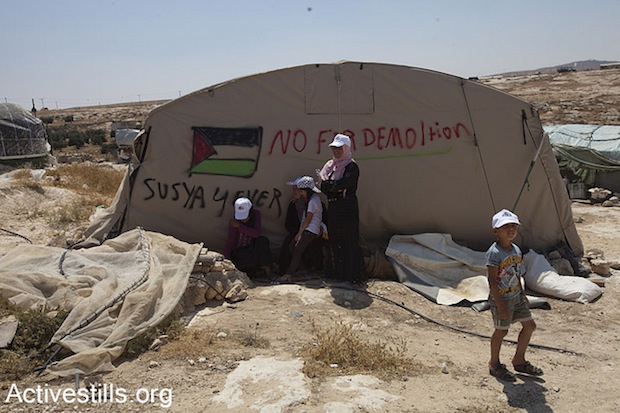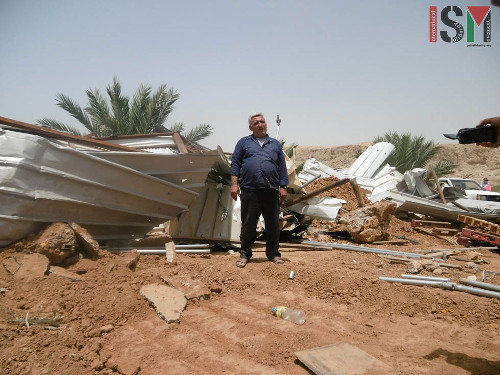Tag: House Demolition
-
Israeli State threatening immediate demolition of entire Palestinian village
5th May 2015 | Operation Dove | At-Tuwani, Occupied Palestine This article was originally published as a press release by Operation Dove. The entire Palestinian village of Susya is in danger of demolition and expulsion. By refusing to issue an interim order preventing preemptive demolitions before their case is heard, the Israeli High Court is…
-
Join The Resistance! Join the International Solidarity Movement in Palestine
In recent months activists on the ground have witnessed an escalation of violence directed at Palestinians. There is an urgent need for international volunteers to support grassroots, non-violent Palestinian popular resistance to the Israeli Occupation.
-
Four families made homeless in a day
28th of April 2015 | International Solidarity Movement & Jordan Valley Solidarity | Fasayil, Jordan Valley, Occupied Palestine Yesterday morning (27th of April 2015) at 5 am in the area of al Makhrouk, al Jiftlik, the Israeli military arrived with bulldozers and demolished four houses belonging to Fathe Abdullah Ahmad, Tareeq, Yakub, Mohammed and Mahmoud…



